Tashkent received us with open arms. A good friend of mine has a brother who lives here, so he picked us up from the train station and lodged us in his home. Sasha lives with his wife Ira in an apartment in a very typical Soviet block, in a typical Soviet neighborhood, reminding me very much of my childhood in Moscow. Sovietness aside, Sasha’s home is cosy and pleasant — colorful wallpapers, parquet floors, and a little rug in every spot where one might be appreciated. Sasha and Ira made every effort to make us feel at home, which we did, and it was for us a welcome break from the usual hostels and touristic homestays.
The next evening Sasha’s mom came to meet us and prepare plov. She’s a very warm-hearted woman. As soon as we came in she hugged us and said she felt almost like being in Israel. Her plov was by far the best we’ve had in Uzbekistan; the recipe she gave us was completely standard, so it’s not clear how she manages to make it so exceptional.

Unfortunately, bureaucratic matters soon rained on our parade. Uzbekistan requires every visitor to register with a special government office, accounting for every night of his stay. Licensed hotels do it automatically; when staying elsewhere one must do it on their own. This task proved to be next to impossible, and after some attempts to untangle this mess we gave up and moved to a hostel. I imagined Uzbekistan as the most advanced country in Central Asia, but these troubles, as well as others, somewhat ruined that perception. Too many things are backwards here: cash is barely usable because the highest bill is worth less than $0.50; credit cards are useless because ATMs don’t accept foreign Visa cards, something that works even in the remotest villages of Guatemala. Dollars must be changed on the black market, otherwise they’re worth 30% less. Police is omnipresent, and every ride on the subway requires whipping out the passports at the gates. And as we found out, people can’t even host friends from another country without getting into a twist. It’s all a great shame, because the people here are very sweet and do not deserve this at all. It appears that they are helplessly stuck in a mean and broken system, and have given up any hope for change.
Besides getting our visas to Tajikistan and China, the last two visas on this trip, we didn’t do a lot in Tashkent. The sun was shining as strongly as ever, and after all these weeks of extended exposure to heat, my scorched brain was slowly grinding to a halt. During four days I shot barely a couple of photos. We seriously needed to get out of the desert. As soon as we got our visas we headed towards Tajikistan.
After crossing into Tajikistan and reaching Khojand, we took a jeep ride to Dushanbe, the capital. The scenery around us started changing, becoming more and more mountainous. Soon enough we saw the first snow on a peak above us. These were the Fan Mountains, part of the Pamir range. We looked at each other and smiled. Mountains, at last.
Dushanbe is a pleasant city, currently in a rush of being renovated for its 80th anniversary celebrations due in September — it was merely a village when the Soviets made it into the capital of the newly created Tajik Republic. We spent a day there before boarding a ride the next morning to Khorog, closing in on the Pamir mountains.
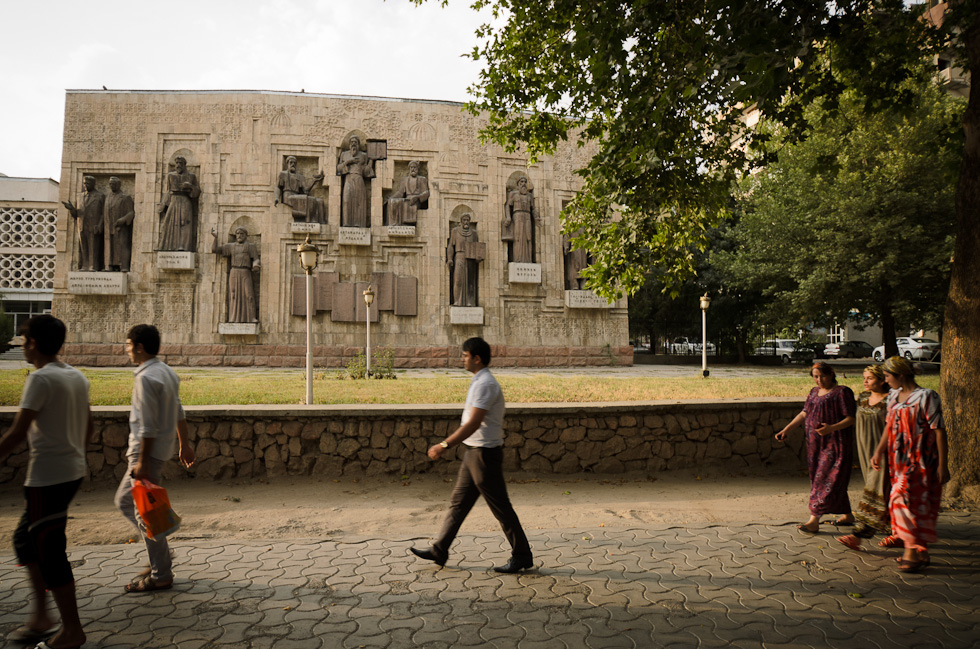
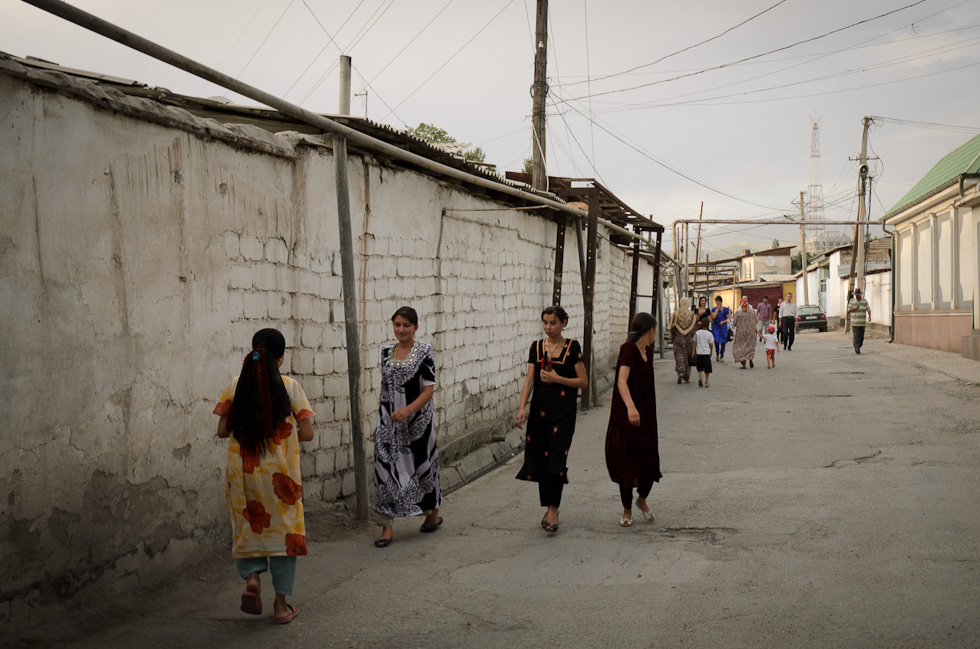
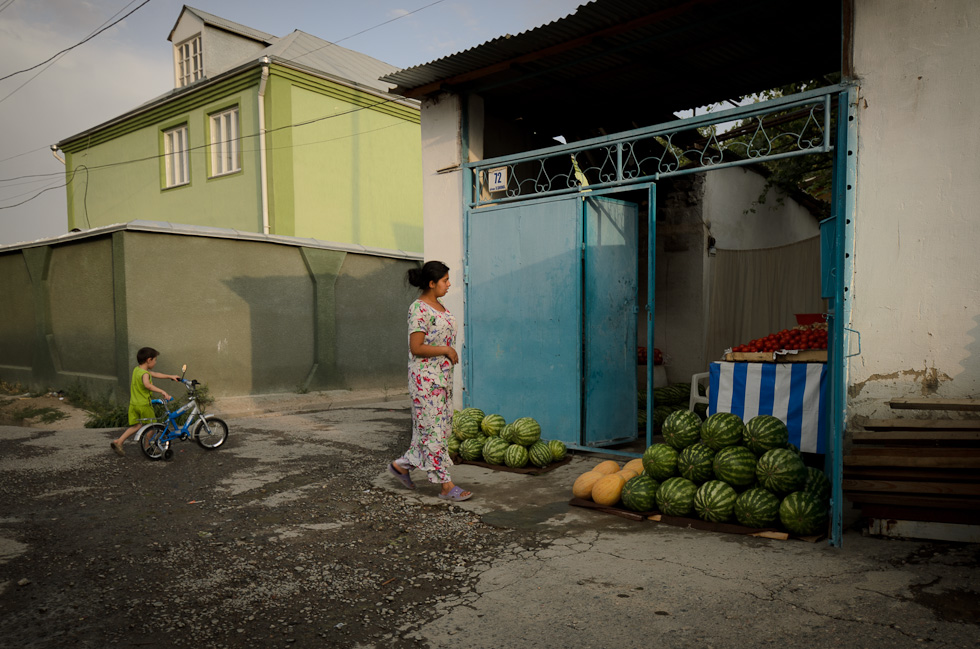
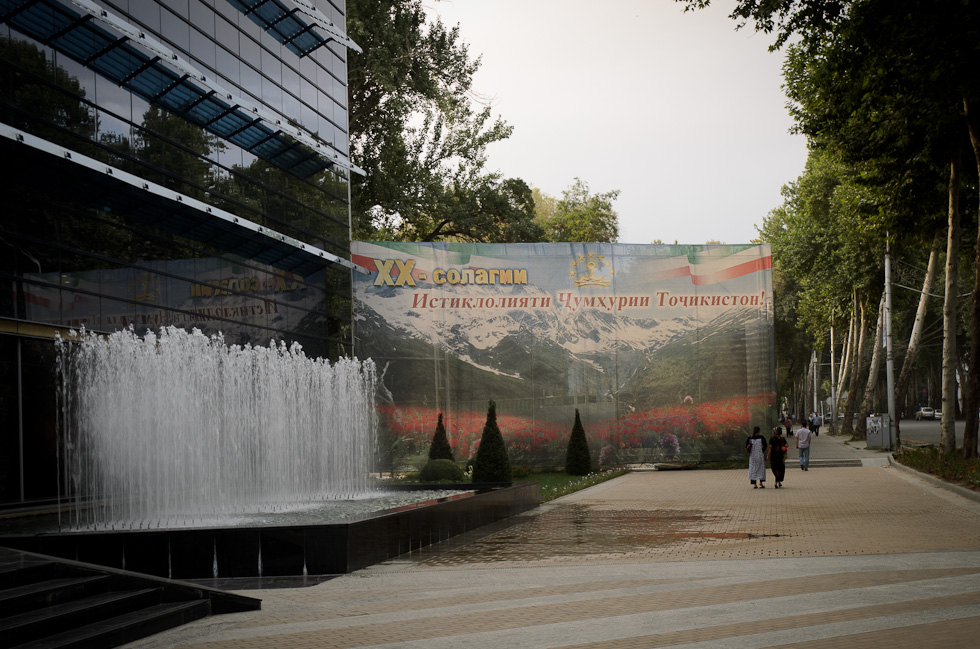


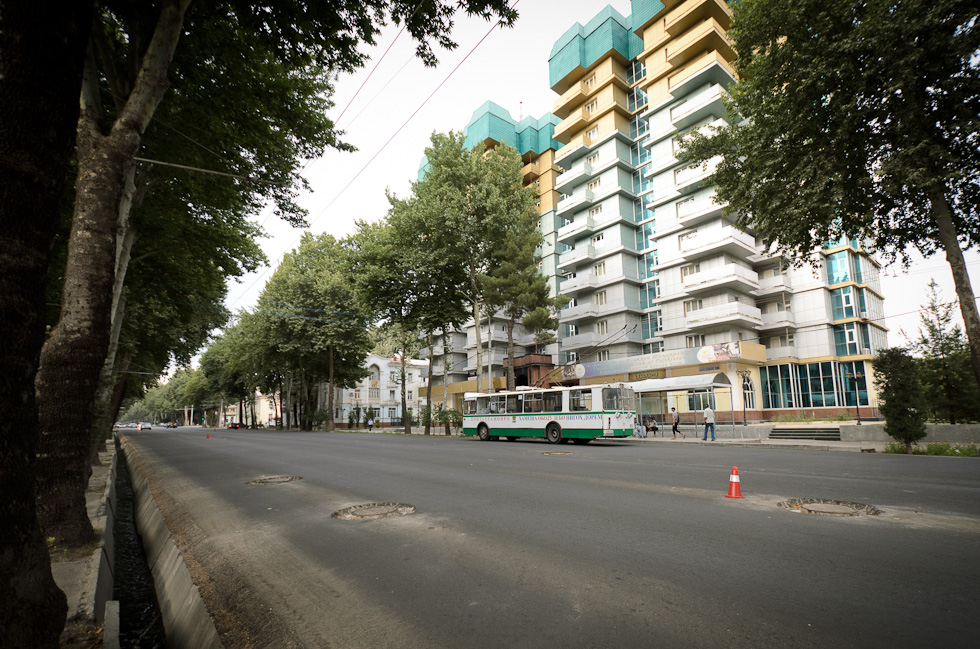

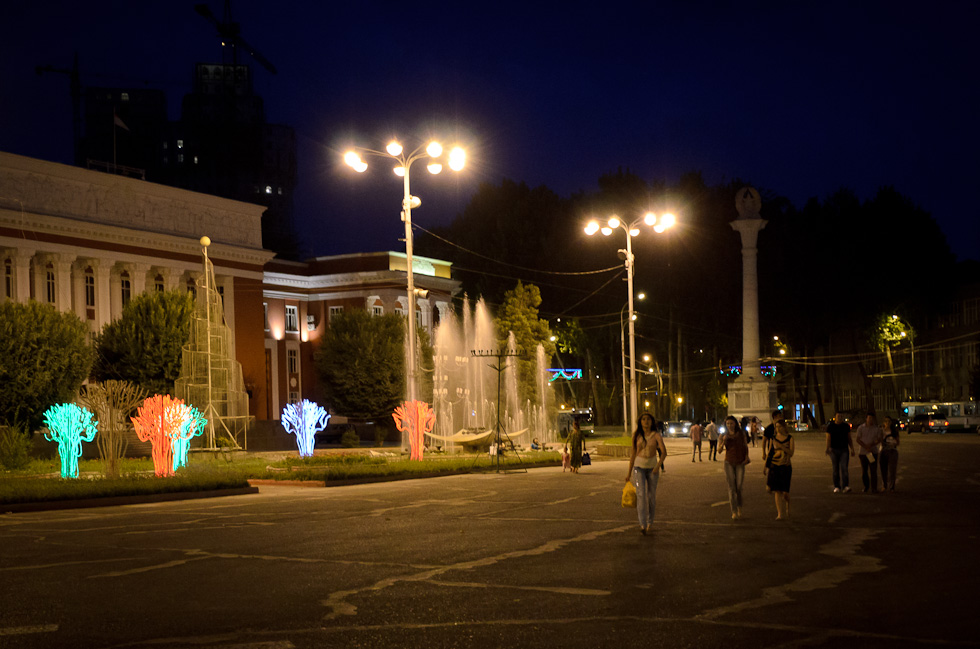
July 10, 2011